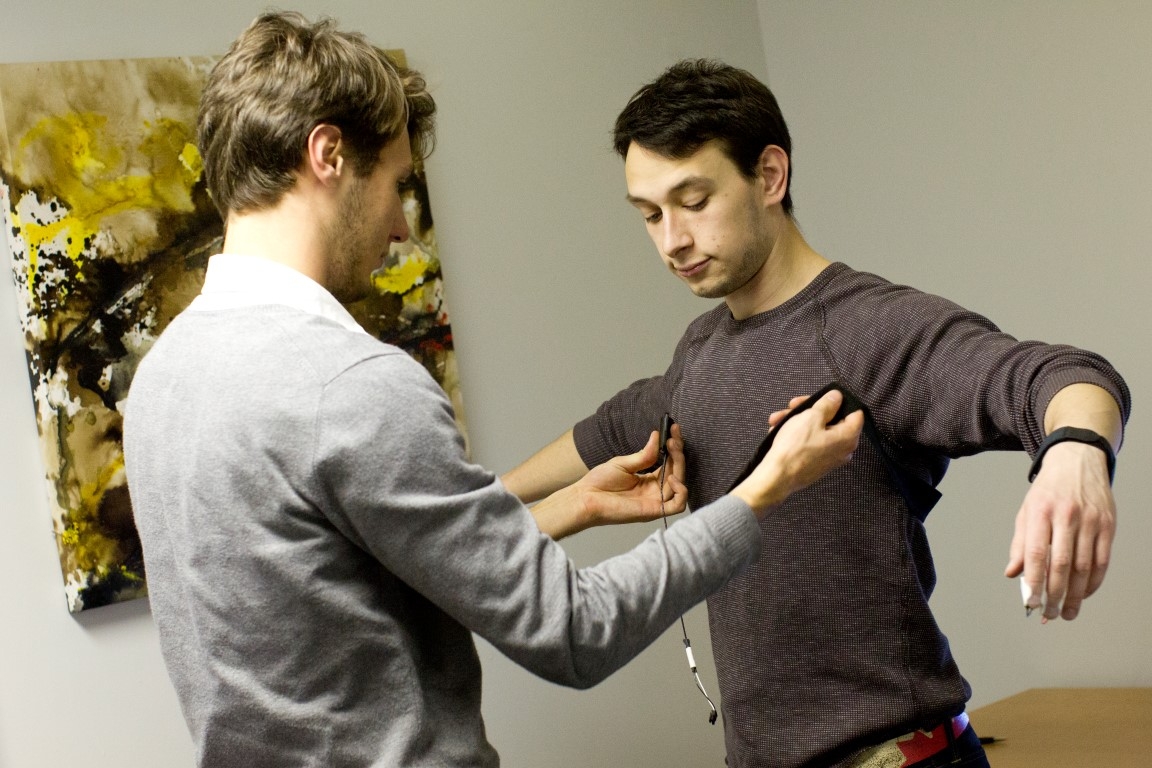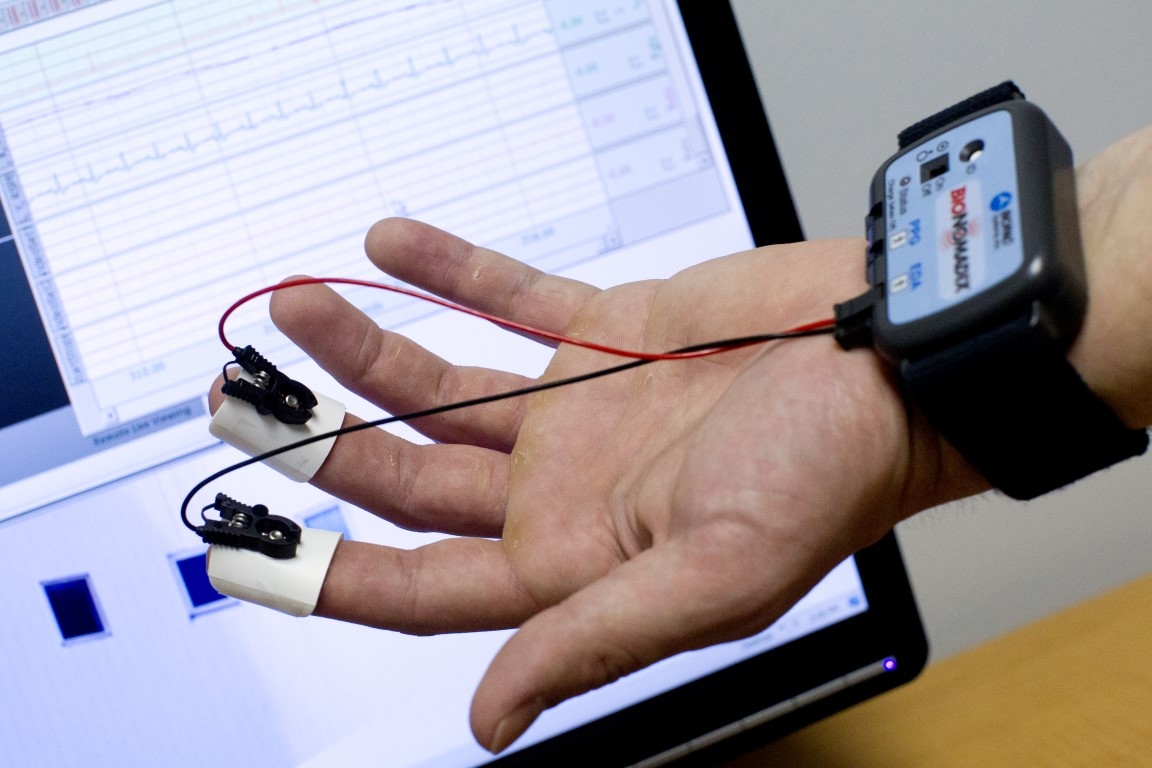Researchers study brain signals, physical reactions to predict TV ad success
Researchers at Temple University’s Fox School of Business are conducting a comprehensive study to assess to what extent neurophysiological responses and other measures of reactions to advertisements can predict the sales performance of TV ads.
Temple’s Center for Neural Decision Making, based at the Fox School, earned a grant from the Advertising Research Foundation (ARF) to evaluate approximately 300 participants’ responses to 35 TV ads from a group of ARF member firms, including major companies in the technology, financial, pharmaceutical and consumer-goods industries. The ARF, founded in 1936, is the premier foundation in the advertising industry for creating and sharing knowledge.
The researchers will employ traditional survey responses and six neurophysiological methods: eye tracking; skin conductance response, which measures arousal; heart rate; breathing; and brain activity as recorded through fMRI (functional Magnetic Resonance Imaging) and EEG (electroencephalographs). The research team will then compare its results with an analysis of sales data led by Russell Winer of New York University’s Stern School of Business to see which of the measures did the best job of predicting market performance.
“It’s a great opportunity to compare all these methodologies with each other, which has never been done before,” said Angelika Dimoka, director of the Center for Neural Decision Making and an associate professor of marketing and management information systems (MIS). “We’ll also be able to identify specific points in the 30-second commercials that can help us further understand what drives sales.” Dimoka is leading the study with MIS Professor Paul A. Pavlou and Vinod Venkatraman, an assistant professor of marketing and supply chain management and associate director of the Center for Neural Decision Making.
Jim Thompson, a Fox alumnus and executive-in-residence at the center, facilitated the relationship with the ARF by inviting members of the foundation and other practitioners to participate in the second annual Interdisciplinary Symposium of Decision Neuroscience, held in 2011 at Temple.
“This was a unique conference in that both academics and commercial practitioners attended and participated,” said Thompson, former global president and CEO of Ipsos ASI, a leading advertising research company. “It was the credibility of that conference that facilitated this collaboration, and it clearly established the Center for Neural Decision Making as the leader in bridging scholarly academic research with industry practice.”
ARF members that are supporting the project will be able to glean insight from the comprehensiveness of the study, which would likely be cost prohibitive for just one firm to conduct, while also benefitting from the scholarly rigor of it. An advisory board constituted of top academic and industry experts is overseeing each method the center uses, to ensure protocols are designed, executed and analyzed correctly.
“This is a differentiating point for Temple and the Fox School,” Thompson said of the project and the Center for Neural Decision Making. “If companies are doing anything at all with neuroscience or biometrics, Temple could be the first school they think of as a result of this study.”

